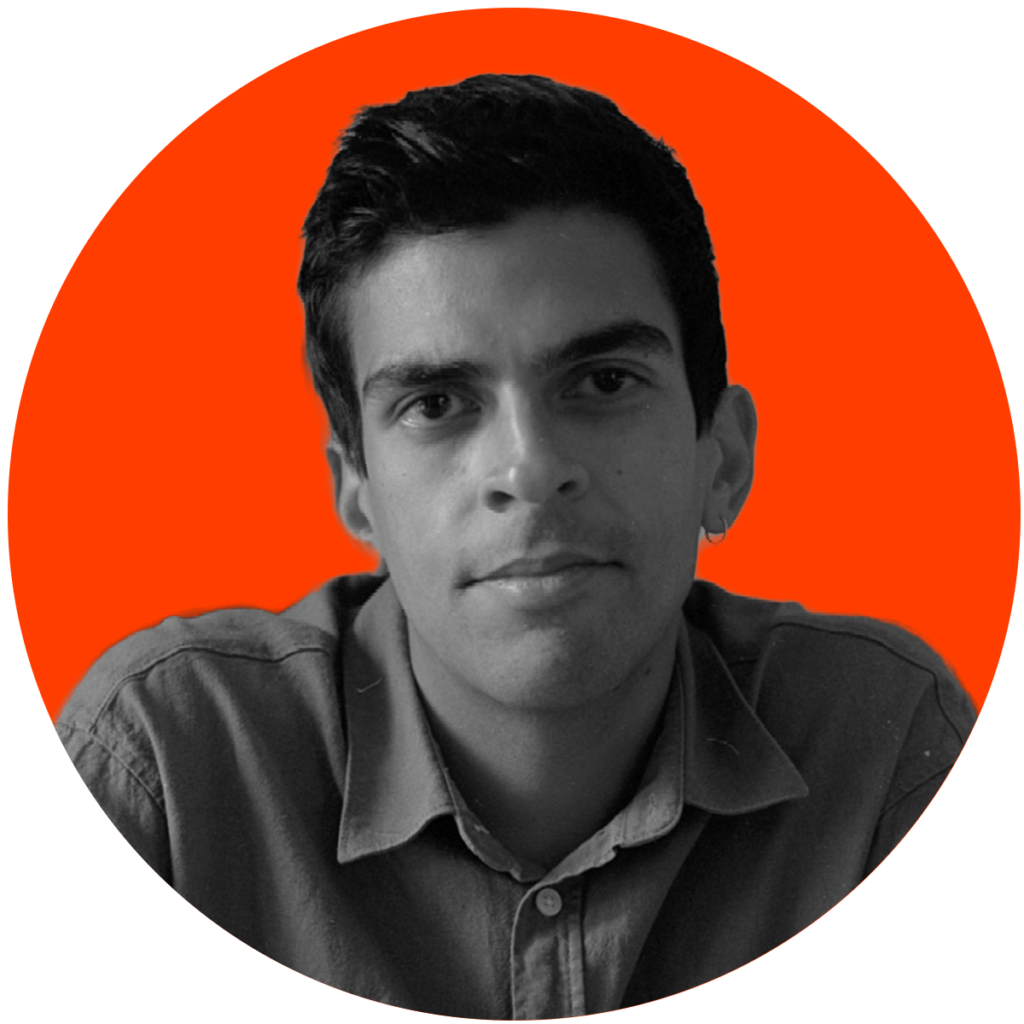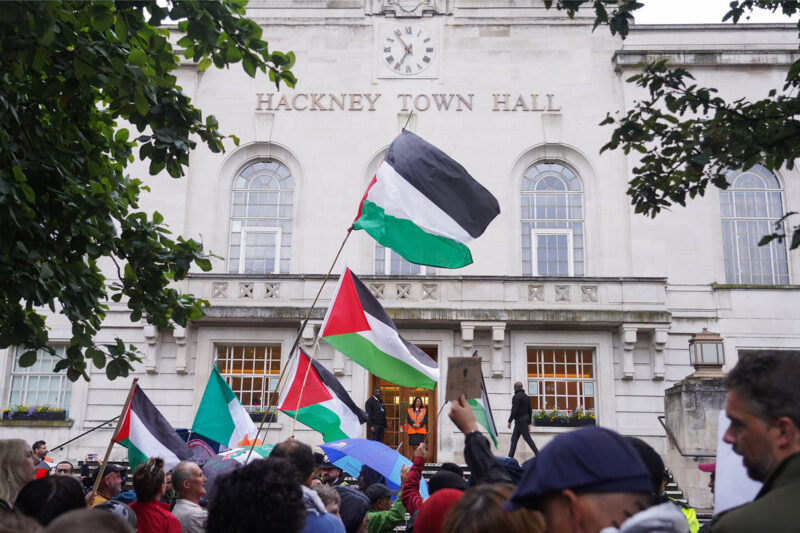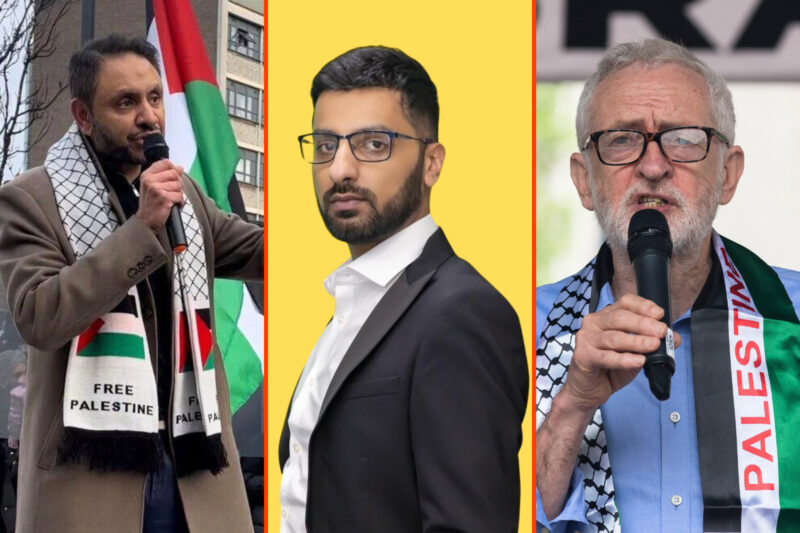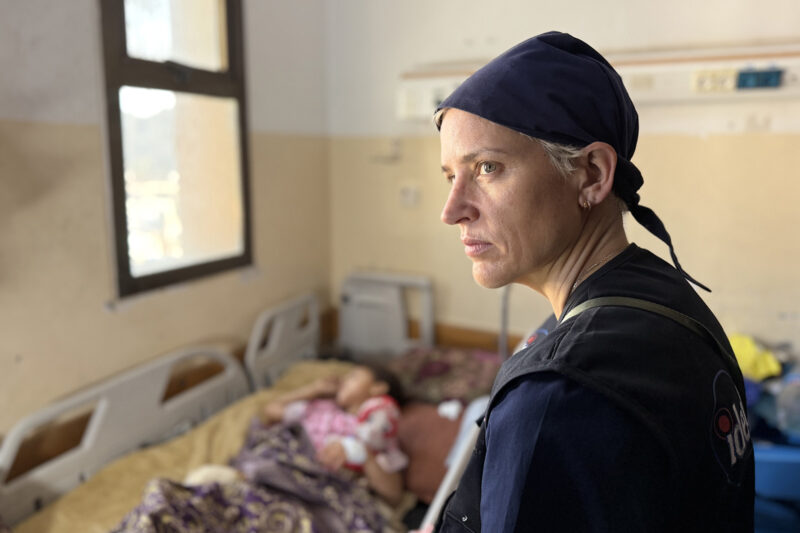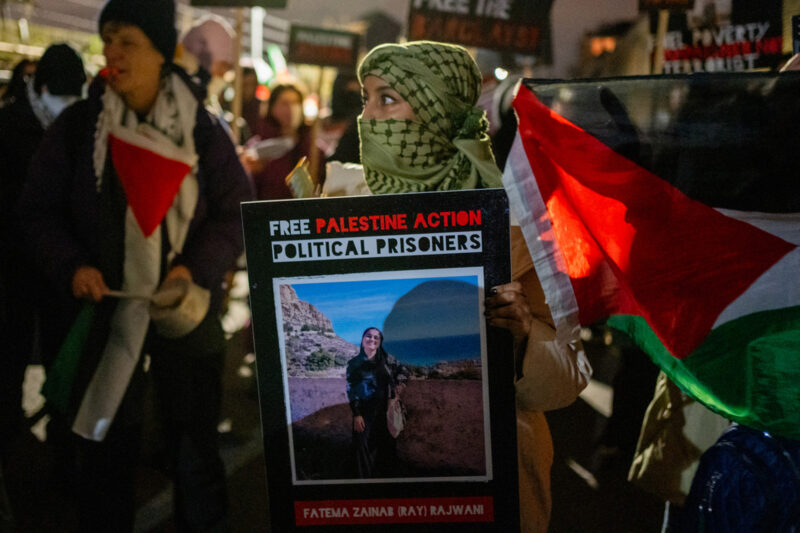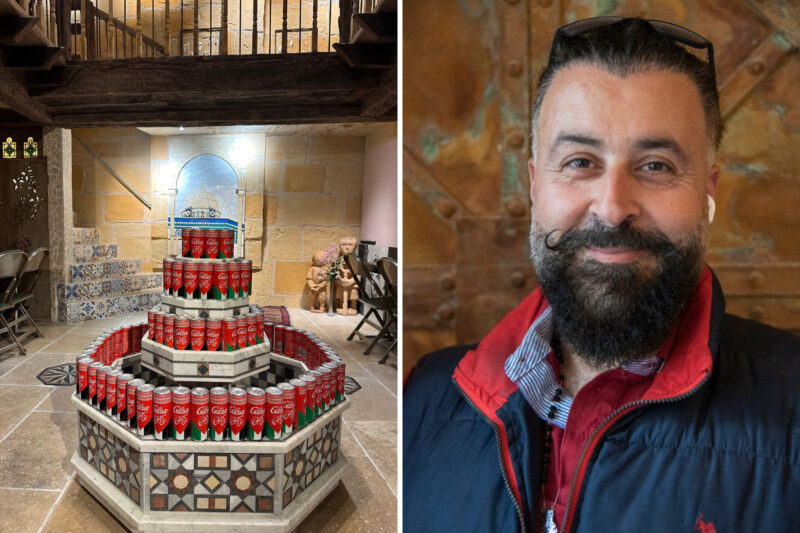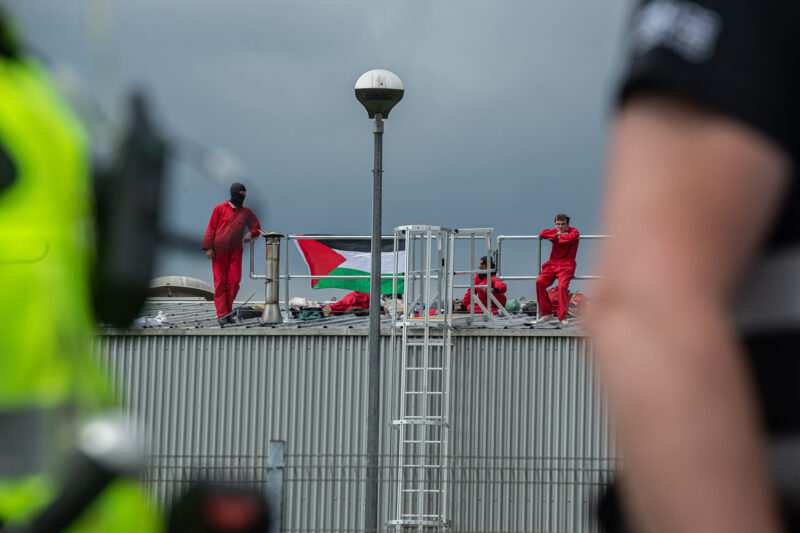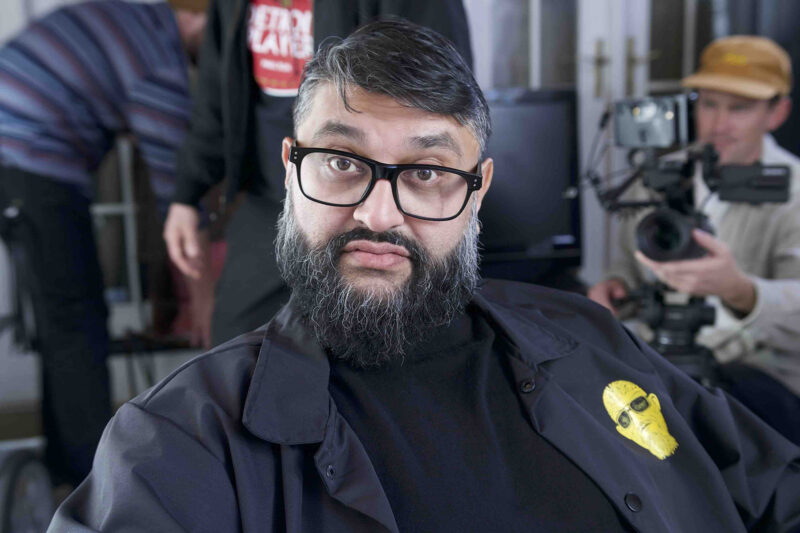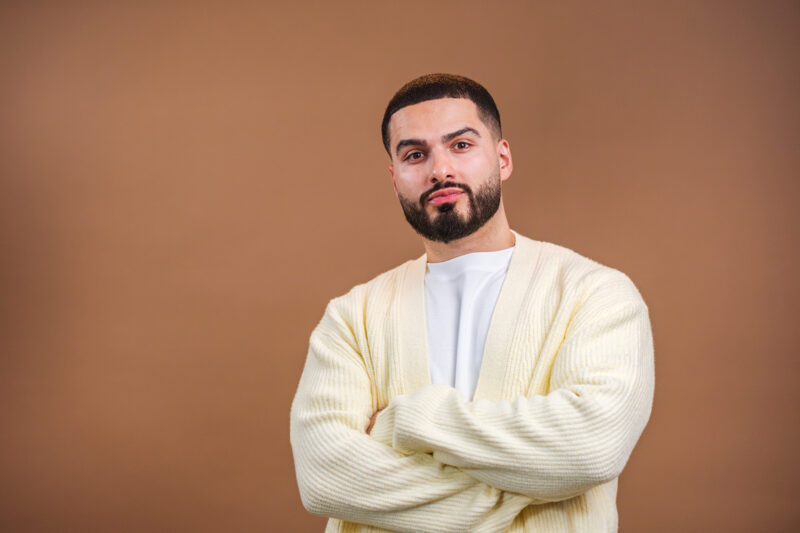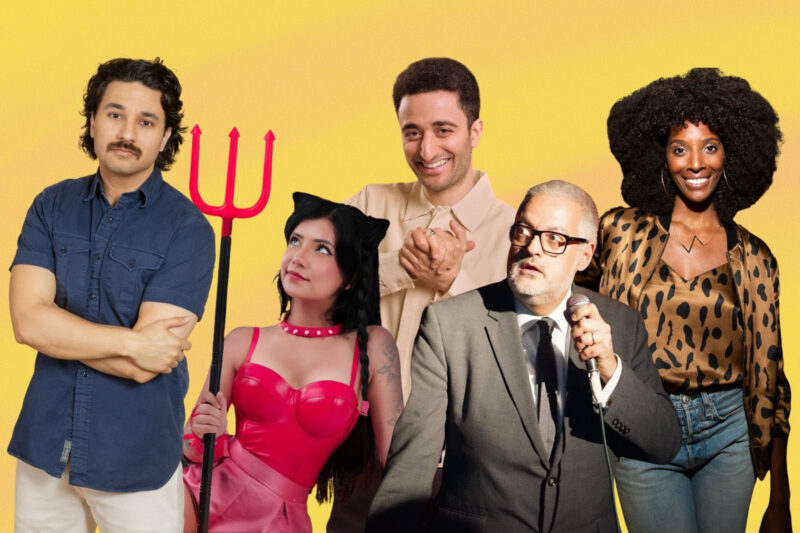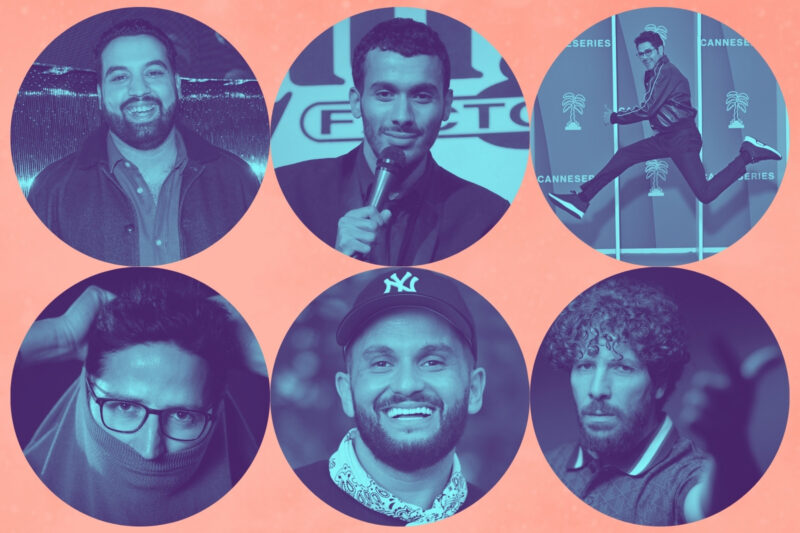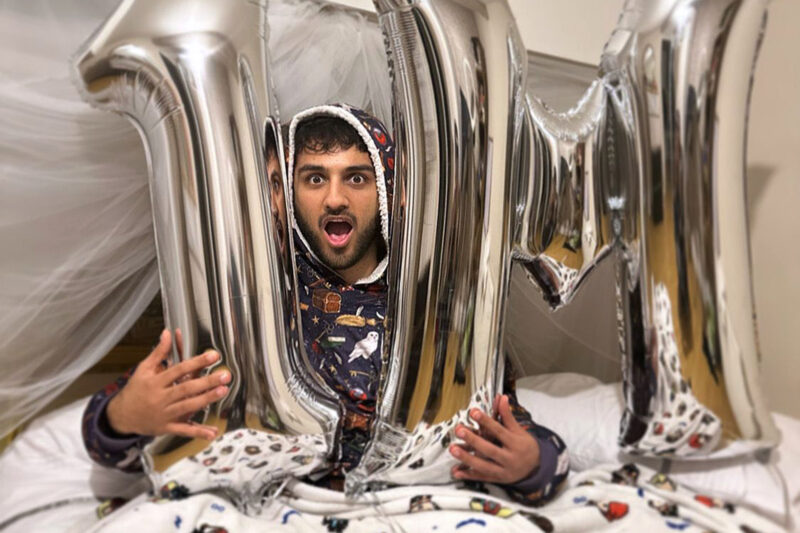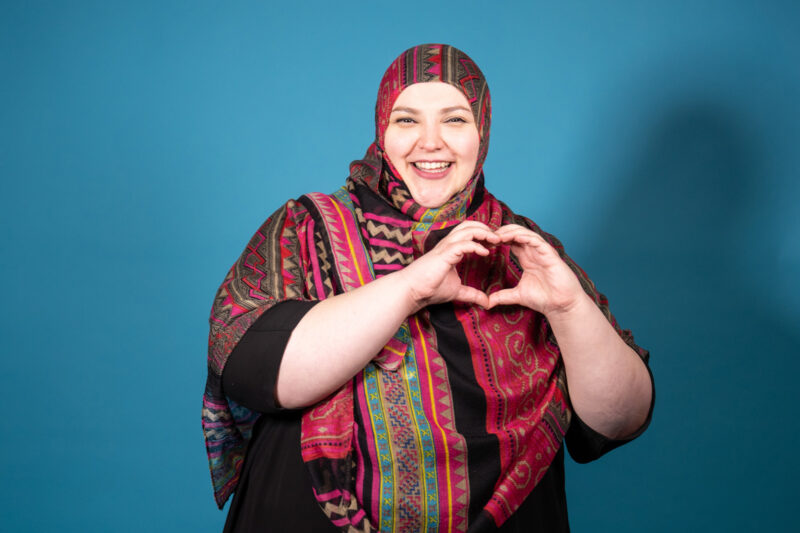‘It’s too raw’: comedians feel conflicted over using their routines to criticise Israel’s war on Gaza
Comedy has historically been used as a form of protest, yet the conflict may be too painful for many Muslim comics
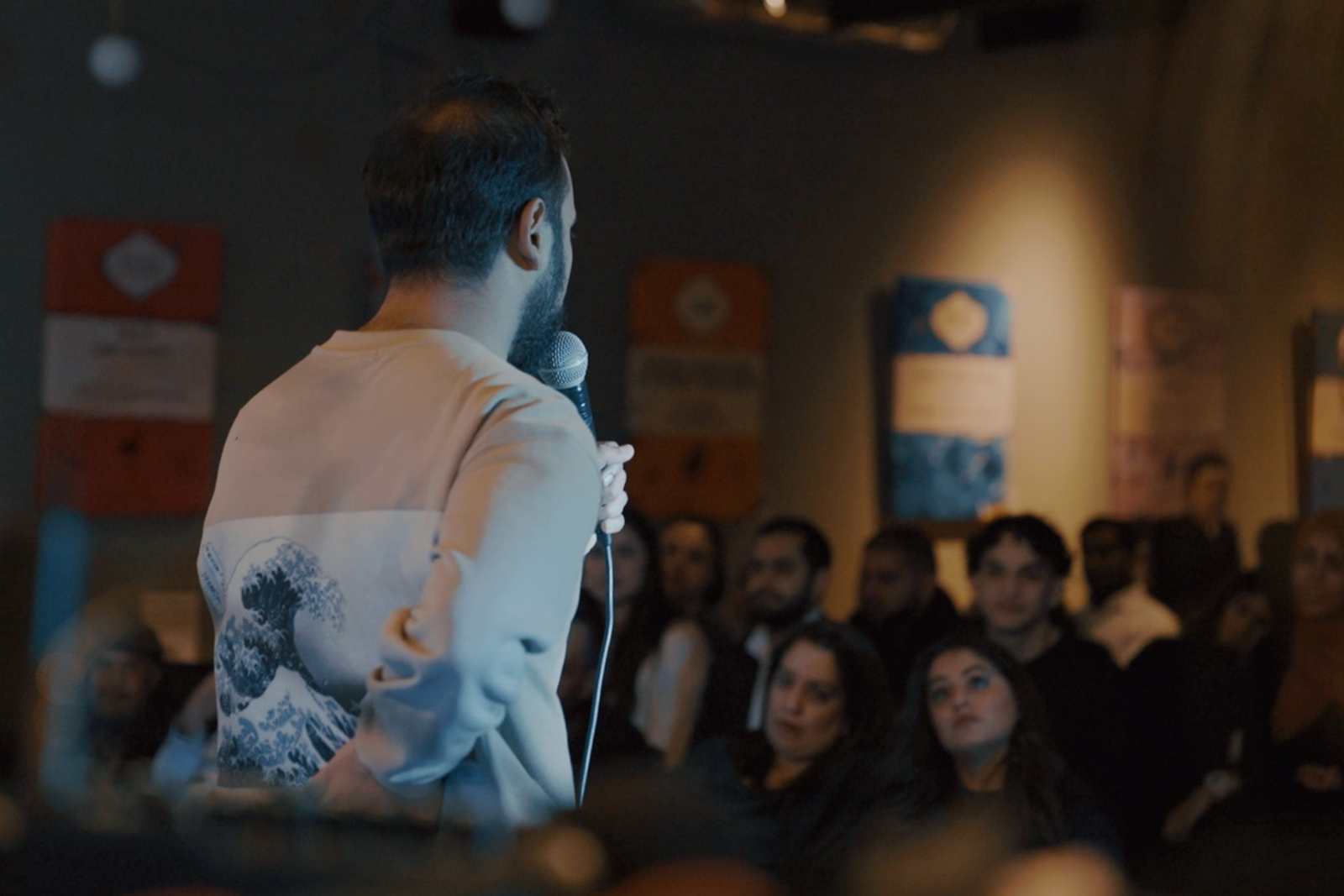
On a hot Friday night in July, 120 people are gathered in the dark basement of a central London hotel, laughing raucously. They are watching six standups performing at the latest edition of Halal Fried Comics, a night founded in April 2024 to provide spaces for Muslim acts to showcase their material to a largely South Asian audience.
The jokes come thick and fast, riffing through tales of family trauma, racism and politics, yet one topic that has been central to this community’s identity over the past year is conspicuously absent: Israel’s war on Gaza. Where comedy has previously been a form of speaking truth to power, with everyone from Dave Chappelle addressing the invasion of Iraq to standups from Russia and Ukraine taking the stage in Berlin to share their disdain for Putin’s invasion, it has been harder to find comics recently addressing the horrors of the conflict in Gaza or using comedy as a form of protest during their routines.
Performers have often experienced tensions over whether it is safe for them to speak about certain subjects. Palestinian-American comic Maysoon Zayid, for example, has said she’s had several corporate gigs cancelled after addressing American political responses to the Gaza conflict, while Egyptian-American comic Bassem Youssef has also consistently addressed the war and consequently faced accusations of antisemitism. With the Edinburgh Fringe currently on, it remains to be seen if any performers will feel comfortable tackling the issue.
“We don’t police what people say on stage but I find that comics have been cautious when it comes to speaking about Israel-Gaza because they’re worried about the wider consequences,” Halal Fried Comics founder Safwaan Rahman says. “There are limited numbers of venues and promoters in London and they want to book a low-risk act who can perform to mixed audiences. A lot of comics also have day jobs and if clips get posted online and taken out of context, it could have serious implications for their livelihoods.”
Rahman founded his Muslim-focused night in response to his own experiences as a performer finding limited safe spaces to explore his identity with a receptive audience. “Audiences dictate your show and when you’re a brown, bearded man like me, it can be risky going into majority white spaces,” he says. “Often it becomes a double-edged sword when Muslim audiences don’t feel comfortable coming to bars and pub venues, and then Muslim comics won’t perform personal material there because they don’t feel safe either.”
Even when presented with a safe space at the Halal Fried Comics nights where, Rahman says, acts have previously spoken about abortion rights and their relationship with religion, it seems that using comedy as a way to speak out on the war might be too painful. “Comedy can be a great vehicle to connect with an audience while talking about difficult topics, but some things might feel too raw to address right now,” he says. “It’s important to laugh as a community and sometimes audiences want a distraction from the outside world.”
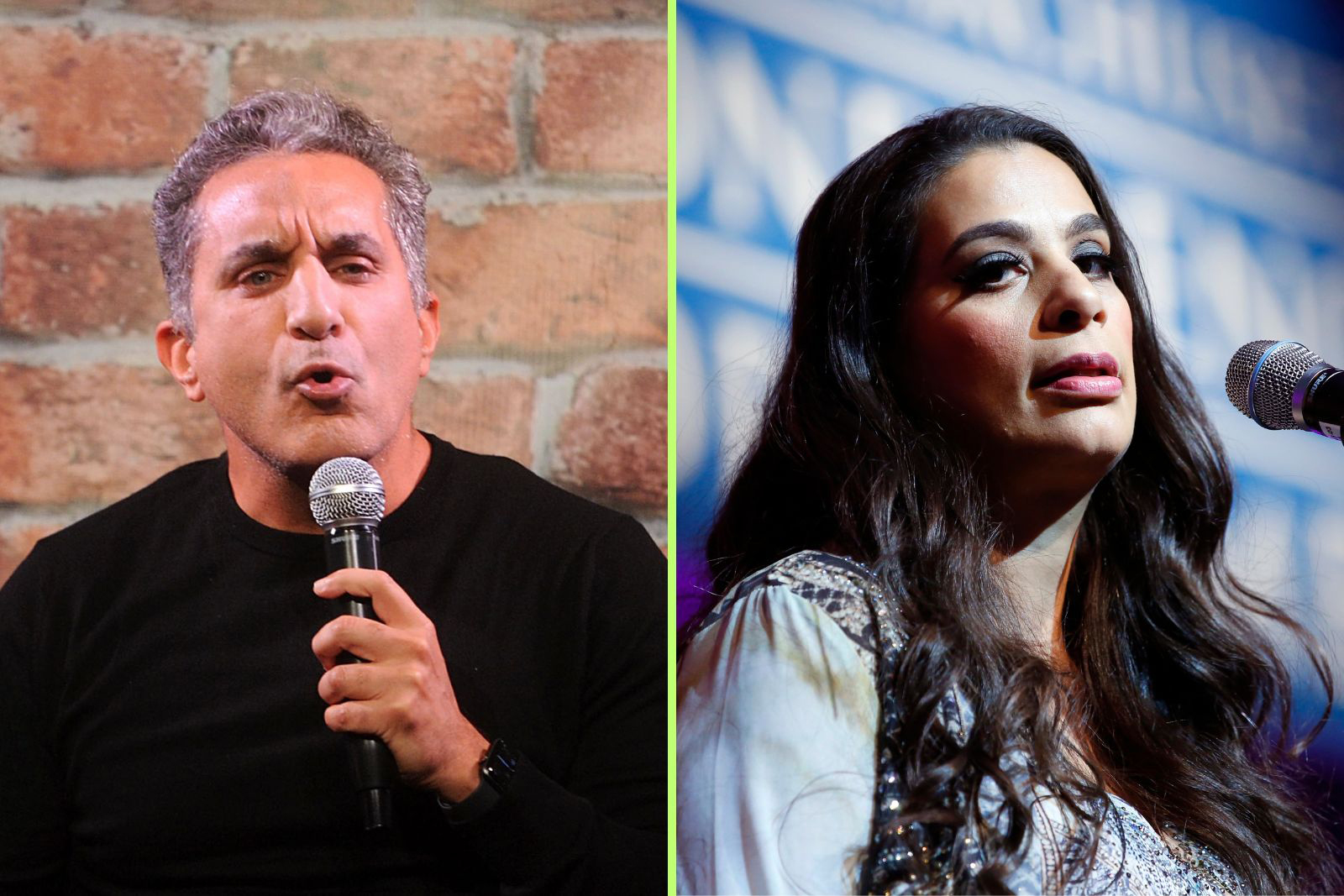
For Irish-Palestinian performer Nadia Said, her Instagram page is a safer space to share her feelings about the conflict than onstage. “You can feel quite vulnerable as a comic, especially if you’re a woman,” Said says. “Even if they look receptive, you don’t know who might be in the audience so safety is the most important thing. Comics might not feel comfortable speaking out about Israel-Gaza in case people become outraged or upset.”
Having performed material about her identity since 2009, she has experienced the gamut of promoter and audience responses. “I’ve never experienced promoters telling me not to talk about Israel-Gaza but I don’t tell them my background in case it might affect any future opportunities,” she says. “It’s also a matter of material — I’ve seen other comics joke about the situation in a negative manner to get laughs. That makes me feel that certain topics are off-limits. When there is a genocide happening, should you really be joking about it? How can you tread that moral line?”
It’s a sentiment Aneesa, a first-time Halal Fried Comics attendee, shares. “I’m just not sure how what’s happening in Gaza right now could be funny,” she says. “I’m all for people raising awareness and fundraising but I came tonight to be around like-minded people and have fun, whereas the conflict is traumatising and serious.”
Performer Salman Malik has organised three comedy fundraisers for Gaza over the past year and has experienced online backlash as a result. “The venues have been great, since they’re ones that I know and have booked before, but when we were promoting the show online, people were writing really nasty comments like ‘Will Hamas be coming?’” he says. “I was sent hate mail and it made me consider hiring security for the people coming in case anything went wrong.”
Thankfully, the shows went off without a hitch and raised more than £100,000, but Malik is worried about a wider silencing of comics owing to England’s increasingly harsh protest laws. “We should be allowed to talk about whatever we want on stage but when you have people charged with a hate crime for holding a placard calling politicians coconuts, we’re in trouble,” he says. “I use that term all the time and now it’s being weaponised.”
Ultimately, in the face of free speech being used as a tool in political culture wars, Rahman sees comics having a more complicated role than ever. While he feels there is no explicit “blacklist” in British comedy venues, there is an unspoken understanding that acts who are seen as “risky” will begin to lose bookings. “It’s a hard line to tread because some of the most powerful arguments about Palestine have come from comics, from people like Youssef, since they combat the idea that brown Muslims have backward views and are prejudiced,” he says. “Comedy adds colour. It can be more relatable and personal than sharing infographics and raw footage. Yet comics are also professionals with lives and families to protect. Sometimes they just want to provide people with entertainment for the 10 minutes they have on stage.”
It’s a delicate balance, but back in the basement, as Halal Fried Comics wraps up another gig and the crowd steps out into the night, they seem to have been given the distraction they were looking for. “I had the best time,” Aneesa says. “I shared joy with my community and that’s all I needed.”
 Newsletter
Newsletter

